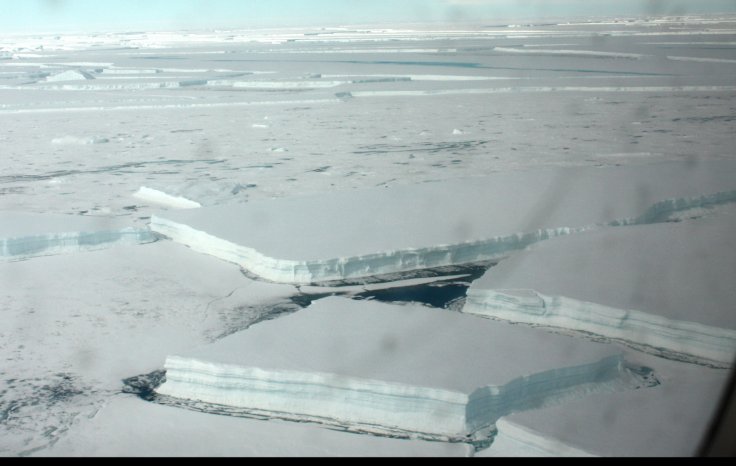
There are several studies on extra-terrestrial or alien life and now a research team has decided to search for outer space life in Antarctica, by using and testing the limits of the underwater robots, especially beneath the ice shelves.
The Georgia Tech researcher, Britney Schmidt from the Antarctic research station has initiated the exploration programme to unveil the truth behind alien life. Schmidt told Popular Mechanics, "Anytime you take your whole program's work and dangle it off of a fibre optic cable through meters of ice...it's a little unnerving."
Schmidt along with other researchers are testing a drone called Icefin, which was built to explore the extreme ecosystems, hidden beneath a thick layer of ice. Even though there are few underwater species beneath the planet's ice sheet, not seen by humans before, the main aim of the research is still unclear.
The Icefin technology is developed to search for alien lives, which is also called 'bug hunt'. Possibly by 2030, the Icefin will also be used in the icy water of Jupiter's moon Europa.
According to Schmidt the Icefin is capable to deploy through small drill holes in the ice, "similar to what will one day be needed to explore Europa. In the meantime, this project is looking to understand how ice-ocean interactions operate in Antarctica, and how these processes may couple to biological communities."
The hi-tech alien search technology Icefin is designed like a torpedo with10-foot length. After 2014, when one prototype drones plumped the Antarctic as a part of National Aeronautics and Space Administration's (NASA) program, the space research centre is now finding their expeditions to put a developed Icefin under the ice.
"We got Icefin flying great, exercised all of our instruments and got great data from three different target sites, including traversing over two kilometres out under the McMurdo Ice Shelf, reaching the sea floor below the shelf at two areas locations and depths, and surveyed the Erebus glacier tongue," said Schmidt.
According to researchers, the high-IQ Icefin will be helpful for expedition in Europa. This new Antarctica program called the Ross Ice Shelf and Europa Underwater Probe (RISE UP), will include more instruments, new cell counter and most probably a microscope at the Atlanta campus in next nine months.
In 2018 October, the next phase of this research will focus on Icefin's autonomy. Later, in the final expedition, the researchers will look into the drone's sampling systems and on-the-fly decision making.
Though Antarctica is an ideal place to do this research, Schmidt claimed that the extreme weather makes the usual work difficult for scientists and engineering teams as already showcased in many documentaries and TV shows including the "Big Bang Theory."
Since the mission is too particular about its target, which is 'the search of alien life', Schmidt has experience and explained about the animals and creatures what people did not see on Earth. Maybe in future, the Icefin will discover other incredible things beneath the icy surface on Jupiter's sixth rock.









